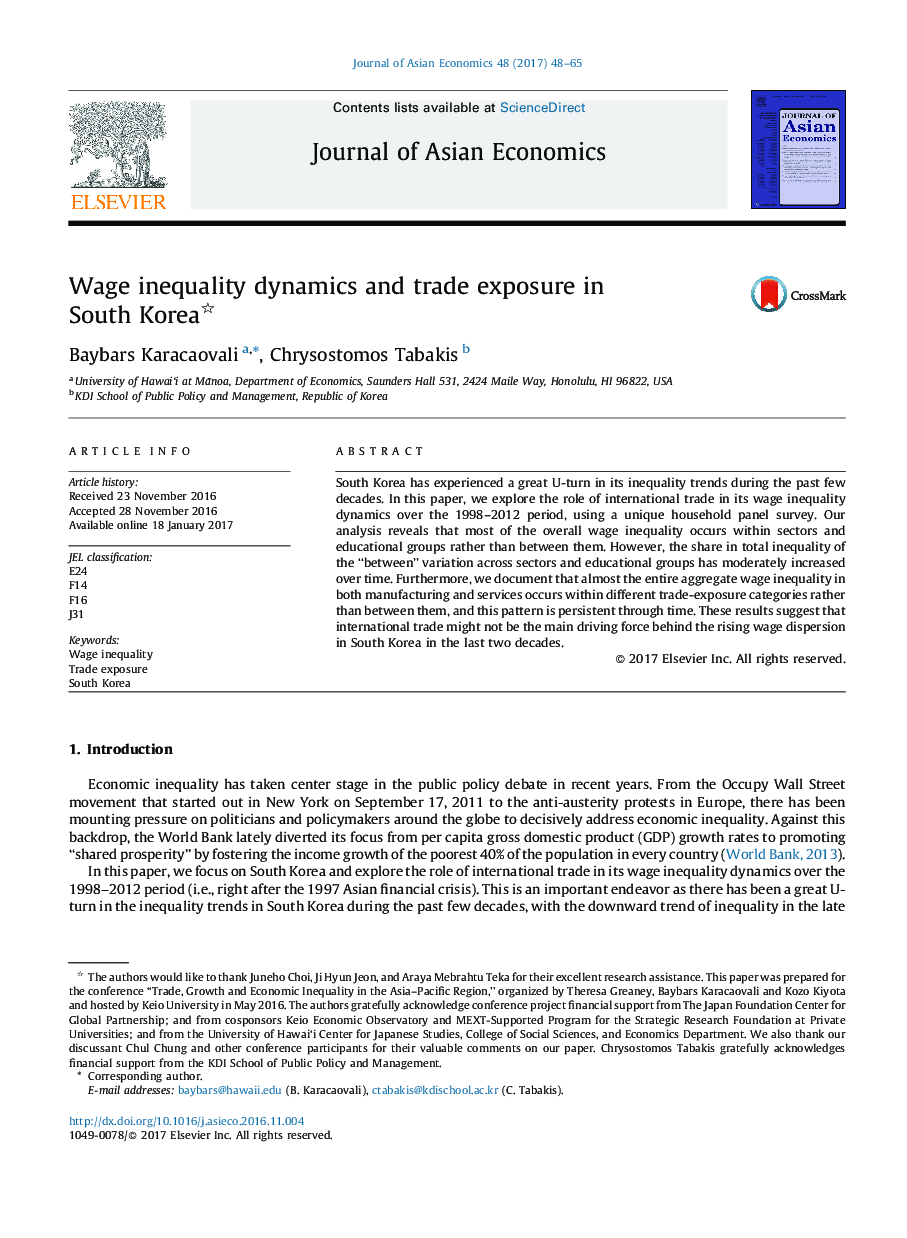| Article ID | Journal | Published Year | Pages | File Type |
|---|---|---|---|---|
| 5087168 | Journal of Asian Economics | 2017 | 18 Pages |
Abstract
South Korea has experienced a great U-turn in its inequality trends during the past few decades. In this paper, we explore the role of international trade in its wage inequality dynamics over the 1998-2012 period, using a unique household panel survey. Our analysis reveals that most of the overall wage inequality occurs within sectors and educational groups rather than between them. However, the share in total inequality of the “between” variation across sectors and educational groups has moderately increased over time. Furthermore, we document that almost the entire aggregate wage inequality in both manufacturing and services occurs within different trade-exposure categories rather than between them, and this pattern is persistent through time. These results suggest that international trade might not be the main driving force behind the rising wage dispersion in South Korea in the last two decades.
Related Topics
Social Sciences and Humanities
Economics, Econometrics and Finance
Economics and Econometrics
Authors
Baybars Karacaovali, Chrysostomos Tabakis,
